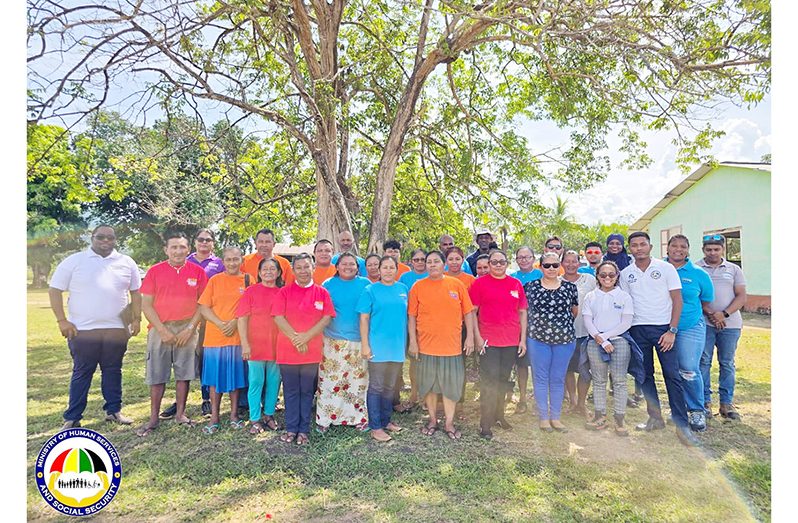THE Ministry of Human Services & Social Security (MHSSS), through its Gender Affairs Bureau (GAB), led a team earlier this month to the community of Surama in Region Nine where gender-based violence (GBV) training was conducted.
The ministry’s team included staff of the Sexual Offences and Domestic Violence Policy Unit and the Child Care and Protection Agency.
The training sessions were meant to equip participants with the requisite coping skills to manage conflicts and anger.
The participants can now train other members of the community in the areas covered.
According to the MHSSS, the two-day training consisted of lectures, discussions, and hands-on exercises, which were directed towards re-socialising males and females. The aim was to move them away from entrenched stereotypical views on expression and performance of masculinity and femininity towards an understanding of gender equality and inclusion.
Added to this, the training and discussion looked at the basic concepts and principles which provided the participants with a clear understanding of gender and development and the term ‘gender-based violence’.
The first day of the training focused on information about the consequences of GBV and the survivour support services that are provided by the ministry. Day Two focused on the rights of the child and every child’s safe space.
In its efforts, the government, through the ministry, introduced the Family Violence Bill of 2024, which is aimed at increasing protection for victims of family violence. The Bill was successfully passed in the National Assembly in August during the 84th Session of the Twelfth Parliament.
In addition, the first GBV Mobile Unit was opened in June 2024 in Mabaruma, Region One (Barima-Waini), and also serves surrounding areas. The unit provides GBV survivors with essential services and immediate support.
This includes making medical, psychological and legal assistance services accessible to victims in that region. Along with this, there has also been an expansion of the Hope and Justice Centres, first launched in Lusignan in April, and another one slated to be opened in Region Three (Essequibo Insalnds- West Demerara) later this year.
During the first six months of this year, some 40 persons were provided with shelter services, while 1,307 accessed free legal aid services.
It is believed that through these awareness sessions and training, the population would have increased knowledge, and be more equipped to deal with social issues in the community.


.jpg)











